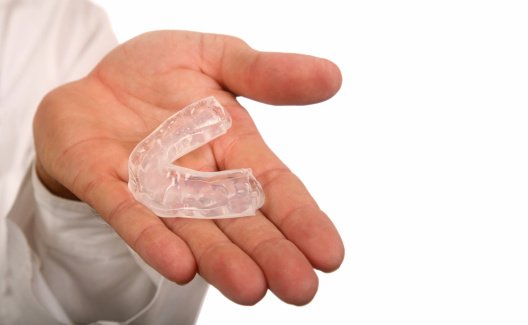
Do you suffer from teeth grinding?
Known by the medical term bruxism, teeth grinding can develop into a serious problem over time. By applying force to the teeth and jaw, it can lead to chipping, cracking, and other permanent damage to teeth.
What Causes Teeth Grinding?
Although certain factors increase risk of grinding, there are no definitive theories on what causes it. Stress reduction techniques can help some people whose grinding is ultimately traced to anxiety or other emotional concerns, but these cases are few.
Other risk factors include:
- Age – the condition more commonly occurs in youths and teens;
- Personality – aggressive, competitive people are at greater risk;
- Stimulation – tobacco, caffeine, and other stimulants raise risk;
- Malocclusion – grinding can lead to misaligned teeth and an improper bite.
How Do You Know if You Suffer from Teeth Grinding?
Many people – perhaps even the majority – do not realize they have the condition.
This is because grinding typically takes place at night, while the sufferer is asleep. Although the activity does damage to the teeth, it rarely causes pain in early weeks and months. Someone with the condition could grind all night long without ever being aware of it.
As with snoring, sleep apnea, and other sleep-related conditions, a bedroom partner is often the first person to suggest grinding is taking place. Common symptoms include unexplained pain in the jaw and increased sensitivity of teeth, which are easily overlooked or attributed to other issues.
Your dentist is able to check for subtle signs of bruxism, usually over the course of more than one appointment. For example, abnormal changes in tooth alignment can suggest this as an underlying problem – which would be hard for anyone to notice without expert help.
Once Teeth Grinding is Discovered, How Can a Dentist Help?
In most cases, the best solution to grinding is called a night guard.
Also called a mouth guard, this is a small, customized device that fits into your mouth and prevents grinding during the night. A custom mouth guard made from soft plastic will reduce the effects, and ultimately the incidence, of grinding.
To make this kind of personalized guard, the dentist begins by taking an impression of the upper and lower teeth. At a special dental laboratory, the impressions are used to manufacture a guard. The fit is carefully checked at a follow-up appointment.
If you need a dentist in NYC who can help with grinding, contact us at Tribeca Dental Care today.

